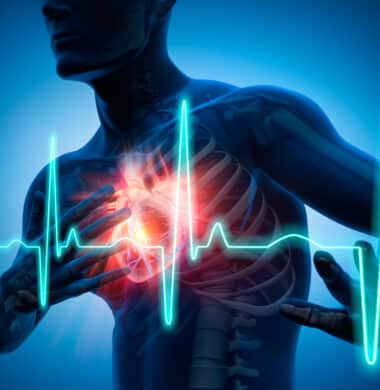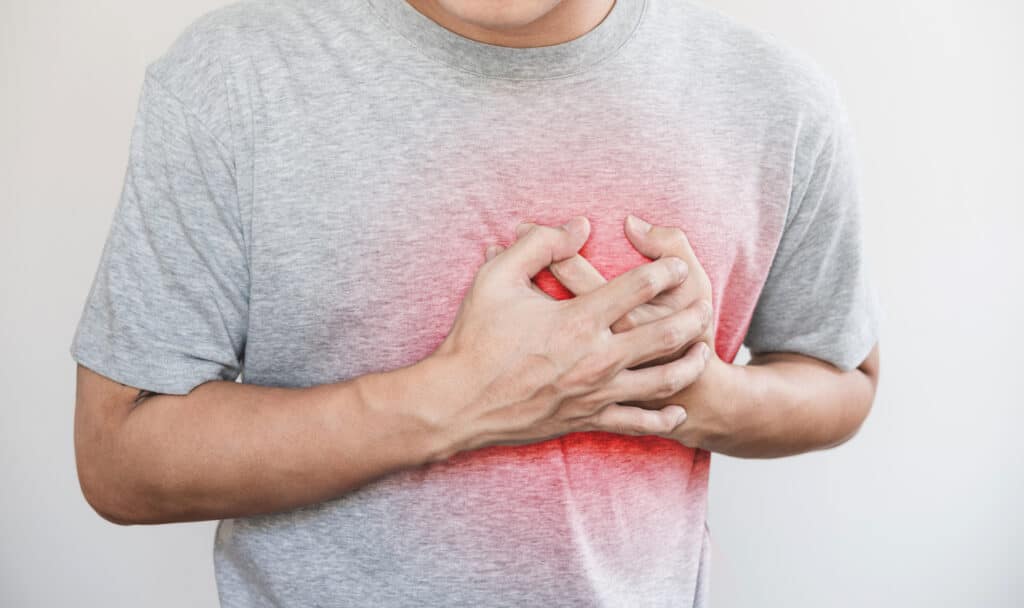Early Signs of Heart Disease

Heart disease is the leading cause of death worldwide. According to the Centers for Disease Control and Prevention (CDC), over 30 million American adults have been diagnosed with the condition, and approximately 647,000 Americans die from heart disease each year.
Due to the seriousness of this condition, it’s critical that you are aware of the warning signs. Often, early detection of heart disease can help prevent a potentially life-threatening issue, such as a heart attack, from developing.
What Is Heart Disease?
Heart disease refers to a variety of conditions that impact your heart. The most common form of this condition is coronary artery disease, which limits the blood flow in the arteries delivering blood to your heart. Coronary heart disease can lead to a variety of serious problems, including heart attacks.
However, there are many other different types of heart disease. It can impact just about any part of your heart, including your:
- Heart muscle
- Heart valves
- Heart’s electrical system
Other types of heart disease include:
- Arrhythmia (abnormal heart rhythms)
- Heart valve disease
- Heart failure
- Cardiomyopathy (abnormal heart muscle)
- Congenital heart disease (heart problems that develop at birth)
How Do You Know if You Have Heart Disease?
Unfortunately, not all heart problems are associated with clear warning signs. Furthermore, not all signs of heart issues are located in your chest. As a result, it can often be difficult to know whether your symptoms are a sign that you may have heart disease. However, there are certain warning signs that are often indicative of heart problems. If you experience any of the following symptoms, you should get checked out by a cardiologist as a precautionary measure.
Chest Pain

- Mild discomfort
- Crushing pain
- A heavy chest pressure, as if an elephant is sitting on you
- Sharp, burning pain in your chest
If your chest pain is very brief or hurts more when you press on the area, it’s most likely not a sign of heart issues. However, if you experience chest pain that lasts longer than a few minutes, you should get examined by a heart doctor right away.
Nausea, Stomach Pain or Indigestion
These symptoms are commonly associated with many other conditions, and they may simply be caused by something you ate. However, they may be a sign that you’re experiencing a heart attack. In general, women are more likely to experience these symptoms during a heart attack than men.
If you have these symptoms and also exhibit any of the other warning signs on this list, you should get examined by a cardiologist. This is especially important if you are at risk of heart disease.
Shortness of Breath
Shortness of breath is often a symptom of heart failure. It occurs when your heart isn’t pumping blood properly, causing blood to build up in the veins connecting the lungs to the heart. When this happens, fluid can leak into your lungs, which causes you to experience shortness of breath.
Arm and Leg Pain
Not all signs of heart disease are located in the chest. Sometimes, these symptoms are experienced in your arms and legs. Pain extending down the left side of the body, particularly down your arm, can often be a sign of a heart attack.
Similarly, leg pain can be a sign of heart issues. If you experience a gripping, cramping sensation in your calves while walking, it may be an indication that you have peripheral arterial disease.
Swollen Legs, Feet and Ankles
Swollen legs, feet and ankles may be a sign that your heart is struggling to pump blood effectively. This can cause blood to back up in your veins, which results in swelling. While this symptom can be associated with conditions that aren’t related to your heart, it can also be a sign of heart failure.
Coughing or Wheezing

Irregular Heartbeat
There are many times when heart palpitations or an irregular heartbeat are nothing to be concerned about. It can be associated with consuming too much caffeine or not getting sufficient sleep. However, an irregular heartbeat or heart palpitations can also be signs of heart issues such as atrial fibrillation or arrhythmia.
Fatigue
Feeling tired or fatigued may be nothing to worry about. It is often a sign that you just need more sleep. You can also feel rundown when you have a cold or the flu. However, fatigue may also be a sign of heart disease, especially if:
- You’re feeling more tired than normal
- You experience sudden, severe weakness
- Your fatigue prevents you from performing routine daily activities
Sweating
Feeling sweaty or clammy for no apparent reason may be a sign you’re experiencing a heart attack, especially if it’s associated with chest pain. Call 911 and request emergency medical assistance right away.
Throat or Jaw Pain
Pain or pressure originating in your chest that extends up into your jaw or throat may be a sign of a heart attack and should be considered a medical emergency.
South Denver Cardiology Can Help if You Experience Signs of Heart Disease
If you experience any of the warning signs of heart disease listed above, you may want to see a cardiologist as a precautionary measure. At South Denver Cardiology Associates, our team of experienced cardiologists will perform thorough diagnostic testing to understand the cause of your heart condition, and we’ll recommend the right treatment plan to address your specific issues. Our comprehensive cardiac services allow us to treat a full range of heart conditions, ensuring you receive the care you need.
Contact us today to schedule an appointment. South Denver Cardiology Associates serves patients in Denver, Littleton and the surrounding areas.
- Arrhythmia vs. Dysrhythmia - July 2, 2024
- Services Offered at Our Transitional Heart Failure Clinic - June 25, 2024
- South Denver Cardiology Offers Pulse Field Ablation to Treat Atrial Fibrillation - June 7, 2024
Sign Up
As with any health concerns, your specific treatment program should be discussed thoroughly with your primary care physician as well as any specialists who may need to be consulted – like a cardiologist.
Sign Up
